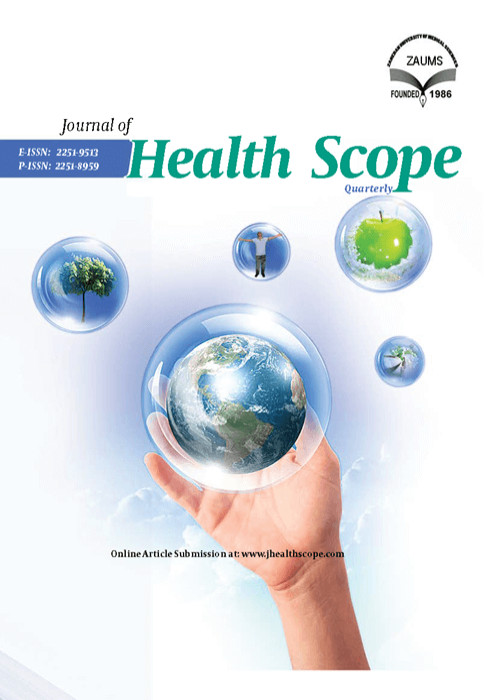The Effect of an Educational Intervention Based on an Integrated Social Cognition Model on Waste Recycling at the Source Among Housewives in Lahijan City: A Quasi-Experimental Study
Recycling is proposed as an economic model for saving raw material and energy costs, pollution reduction, reducing waste, resource depletion, and situation improvement in a range of environmental pollution issues.
The present study aimed to investigate the effect of educational interventions based on an integrated social cognition model (ISCM) on waste recycling at the source among housewives in Lahijan City, Iran.
In this quasi-experimental study, a total of 144 women who sought health care services in Lahijan were selected using a multistage random sampling method. The participants were then evenly divided into intervention and control groups, with each group consisting of 72 women. The study was conducted between 2021 and 2022. Data collection tools included demographic information questionnaires, awareness questions, and ISCM constructs about waste recycling at the source. The total mean scores for the content validity ratio (CVR; 0.84) and content validity index (CVI; 0.83), Cronbach's alpha coefficient (0.85), and internal consistency (0.84) were measured to evaluate the validity and reliability of the questionnaire. Educational content based on ISCM constructs was prepared and carried out in the intervention group in six 60-90-minute sessions virtually via mobile phone using WhatsApp messenger over 6 consecutive weeks. The data were collected before and 1 month after the educational intervention and analyzed using descriptive statistics, Chi-square, independent t-test, paired t-test, and analysis of covariance (ANCOVA) using SPSS version 25.
The mean age of the participants was 38.9 ± 12.1 years. Before the study, the 2 groups had no statistically significant difference regarding all demographic variables, awareness, and ISCM constructs (P > 0.05). The 2 groups showed a statistically significant difference in the mean scores of awareness, attitude, subjective norms, perceived behavioral control, self-efficacy, behavioral intention, and action and coping planning after the intervention (P < 0.001). The mean ± SD of the behavior score increased from 17.25 ± 4.96 before the intervention to 25.78 ± 4.95 after the intervention (P < 0.001).
The design and implementation of educational interventions based on ISCM have the potential to enhance housewives' performance in waste management and recycling while also increasing their awareness levels.
- حق عضویت دریافتی صرف حمایت از نشریات عضو و نگهداری، تکمیل و توسعه مگیران میشود.
- پرداخت حق اشتراک و دانلود مقالات اجازه بازنشر آن در سایر رسانههای چاپی و دیجیتال را به کاربر نمیدهد.


